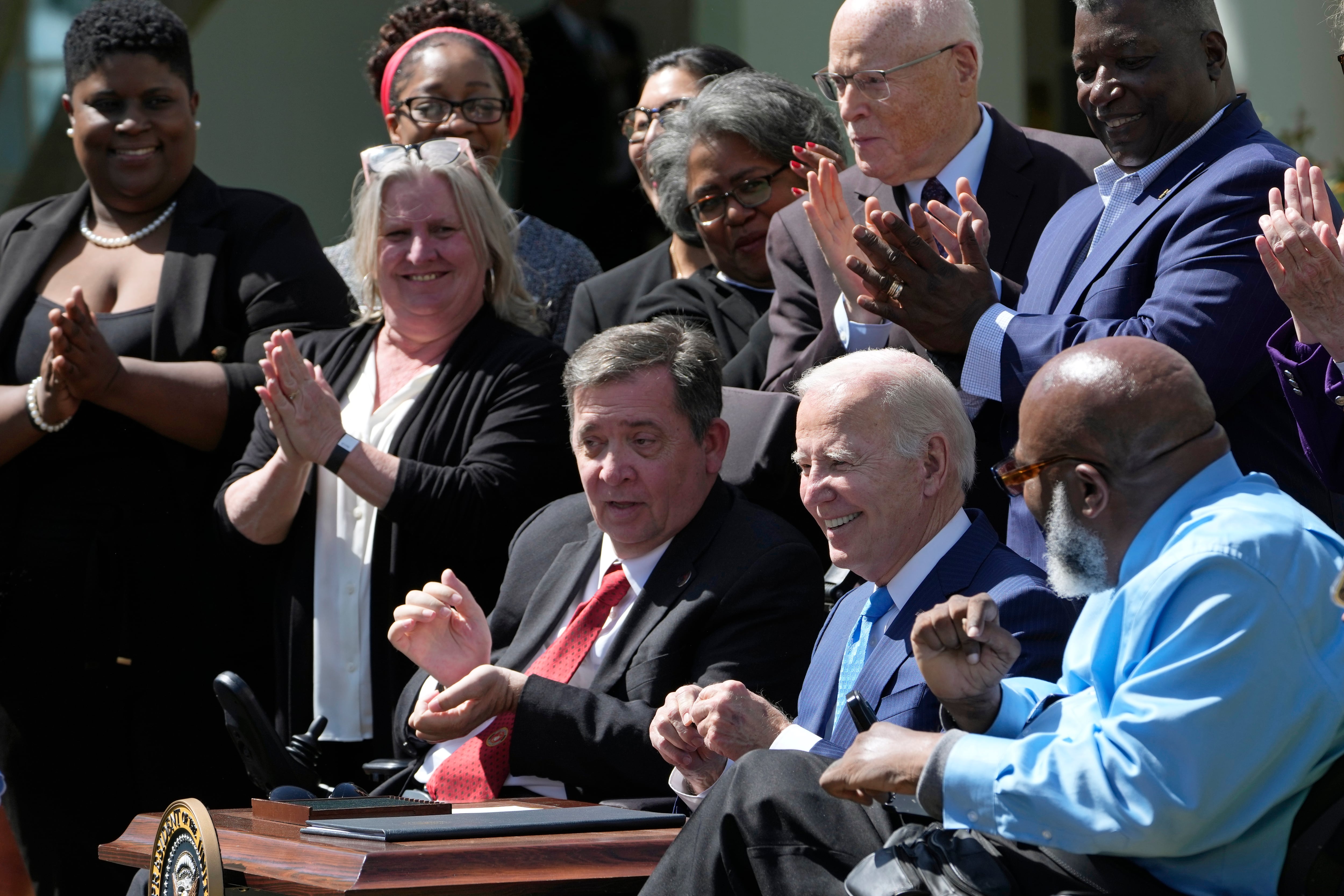Military and veteran caregivers save the federal government hundreds of billions in medical costs annually but still face significant challenges getting support and care for themselves, according to a new report released Tuesday.
Researchers from the RAND Epstein Family Veterans Policy Research Institute also found that nearly one in 10 adults in America provided some level of caregiver services to a veteran or wounded military member in the last two years, a much higher figure than seen in past surveys.
About 14.3 million individuals — 5.5% of the U.S. adult population — are currently serving as military and veteran caregivers, according to the institute’s estimates. Report authors said the value of the services they provide ranges from $199 billion to $485 billion, when taking into account the range of support and medical services they provide.
“Few are compensated in any way for this care,” they wrote. “In fact, caregivers are monetarily penalized: Over a quarter of military and veteran caregivers reported that, because of caregiving, they had cut back the hours they work, switched jobs, quit working or left school early, or felt that they were discriminated against at work.”
RELATED

Fewer than half of individuals surveyed reported getting accommodations at work to account for their extra role as a veteran or military caregiver. More than a quarter though they were discriminated against at work because of the extra demands of their home life.
The report — produced in cooperation with the Elizabeth Dole Foundation — represents the most comprehensive review of the caregiver community in years and advocates for more financial aid, mental health care and community support for those caregivers.
“According to the survey estimates, military and veteran caregivers who cut back on their work or schooling because of caregiving lose approximately $10,000 in household income in a given year,” the authors wrote.
“And caregivers are struggling: Between 50 and 70 percent of military and veteran caregivers have difficulty paying bills, and 22 to 40 percent are food insecure.”
Caregivers of younger veterans are also at higher risk of depression and less likely to seek care than non-caregivers. Researchers found that 43 percent of military and veteran caregivers to injured individuals aged 60 or younger met the criteria for depression, almost four times the rate of the general population.
The advocates said federal and community resources need to better tailor their support services to individual groups’ needs.
For example, caregivers of veterans under 60 were more interested in finding joint activities to conduct with their injured loved ones. Caregivers of veterans over 60 were more focused on “programs that help keep the recipient safe and help with filling out forms.”
The report’s release comes just a few weeks after 11 veterans groups petitioned the White House to speed up decisions on the future of VA’s Program of Comprehensive Assistance for Family Caregivers, the rules of which have been under review for more than two years.
More than 30,000 families are enrolled in that program, which provides stipends and assistance services to caregivers of seriously injured veterans. But thousands of those were threatened with removal from the program when eligibility criteria was updated two years ago.
VA leaders paused those expulsions until another review could be finished, but that has still not yet been finished. The groups warned that “further delay, layered with a change in presidential administration, would only serve to prolong the strain that so many veterans and caregivers have felt while PCAFC continues to fall short of its intent and potential.”
Report authors said they hope the latest research will serve as an additional incentive to move along those reforms, as well as bring other government resources into the conversation about how best to help caregivers.
The full report is available on the Rand website.
Leo covers Congress, Veterans Affairs and the White House for Military Times. He has covered Washington, D.C. since 2004, focusing on military personnel and veterans policies. His work has earned numerous honors, including a 2009 Polk award, a 2010 National Headliner Award, the IAVA Leadership in Journalism award and the VFW News Media award.




